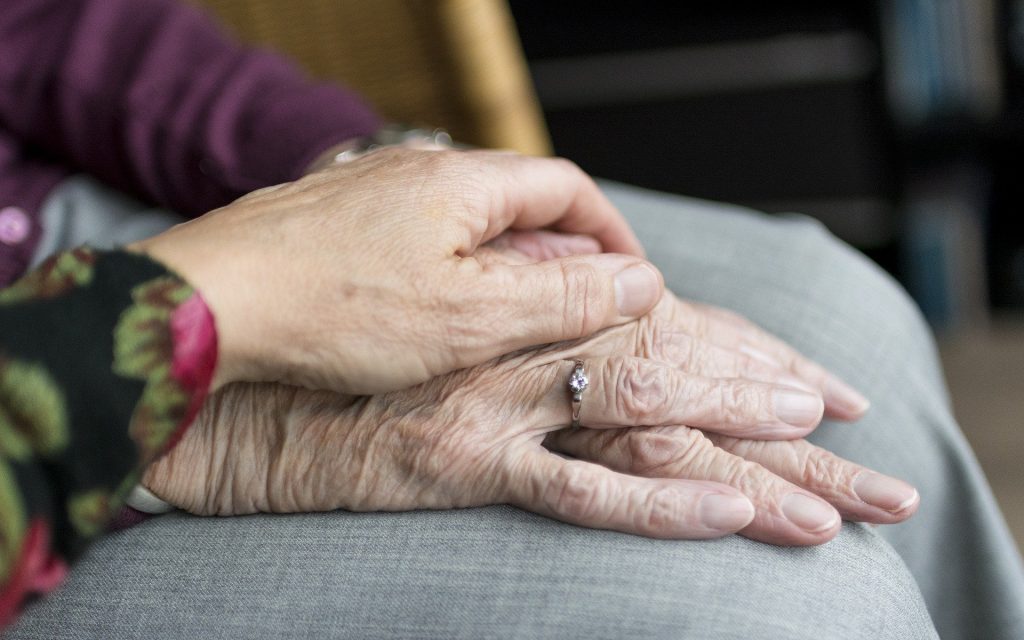 Subscribers Only
People
Subscribers Only
People 
Sarah Rees, head of Oxfam Cymru, calls for the Welsh Government to ‘Make Care Fair’.
As a child, I remember regularly walking home from the supermarket with my mum. The bags were so heavy that the cheap plastic left an etching in our hands: a physical reminder of the fact that we simply couldn’t afford to get the bus.
These etchings left a deeper mark: an inner determination that I would do all I could to help build a world where no child in Wales grows up living in the poverty I faced.
It’s easy to feel despondent about the progress we’ve made. While my childhood memories are of scraping together a fiver to put money on our electricity meter, today many families across Wales aren’t faced with the choice between eating or heating; they can simply afford to do neither.
And it’s an enduring national disgrace that, even in the most affluent areas, one in five children in Wales are growing up in poverty: their needs overlooked, their voices unheard.
But there are chinks of light. My daughter doesn’t face the same dread that I did about getting her period; she doesn’t harbour the worry and guilt I did about asking my mum, a single parent, to buy period products because – thanks to campaigning – they are free to those who need them.
And the campaign to provide universal access to free school meals – so brilliantly led by young people themselves – will hopefully mean that in the near future children no longer feel embarrassed about accessing the food they’re entitled to; no more hiding free school meal tickets up your sleeve like I did so your mates wouldn’t know you couldn’t afford your lunch.
These are small, but significant steps – but they remain steps when what’s really needed is a step-change in the way the Welsh Government tackles poverty.
Redesigning care
Making meaningful progress means a radical redesign of the way the Welsh Government pulls the levers it controls that can impact on people’s prosperity. And it means a radical rethink of the way we, as a society, value and reward those who look after others.
It’s a scandal that people who care for others, whether it be children, adults, people who are sick or have disabilities, and whether their caring is paid or unpaid, are more likely to live in poverty.
The pandemic shone a spotlight on the fact that, across Wales the work of those who provide care hold our society together; an invisible network of support for people who need it most that underpins our social and economic foundations. But that light has faded now, and Wales’ carers have found themselves plunged back into the darkness and the virtual political invisibility they previously faced.
Caring for carers: key areas for reform
Addressing the plight of paid care workers must be a key pillar of any future anti-poverty strategy. Wales’ social care sector faces well documented and serious challenges in recruitment, retention and status and many paid carers themselves face poverty thanks to low pay and precarious working conditions.
Of course poverty is fuelled by inequalities too, with Wales TUC analysis warning that insecure work perpetuates structural racism and gender inequalities: highlighting that Black, and other women of colour are twice as likely to be on zero-hours contracts than men.
The development of a National Care Service for Wales provides Ministers with a golden opportunity for change. Ensuring that Welsh care workers are paid the real living wage is a strong start, but the Government must go further: eradicating ‘for profit’ care, zero hours contracts and the ever-increasing reliance on agency staff.
The weight of the near collapse of our social care system sits heavily on the shoulders of Wales’ hidden network of unpaid carers, who quietly and resolutely fill in the gaps in care. For many, caring is a full time job that they can never clock off from; leaving them little time to pursue paid employment and instead leaving them reliant on an inadequate and perplexing social security system. Anyone who’s ever had to navigate this system knows how complex it can be: there are so many different hoops to jump through being a gymnast is apparently a key requirement for being able to access the support you are entitled to. Ministers must do everything within their gift to urgently strengthen and streamline this system.
Childcare – lately much in the news – must be another political priority. Wales’ Childcare Offer has helped reduce many families’ astronomical childcare bills, but it hasn’t been the silver bullet Ministers mistakenly thought it would be in terms of helping women get back to work. It’s simply too little, too late. And we mustn’t forget the less high profile victims of Wales’ creaking childcare system: the childcare staff tasked with looking after our little ones. Like social care staff; they are often left languishing on poverty wages; their work undervalued and deemed unskilled by society; when the reality is their jobs are utterly foundational to our children’s wellbeing and development.
The Welsh Government must right these wrongs: using the funds they will receive as a result of the recent UK budget announcement to widen and strengthen the Childcare Offer while ensuring that all childcare workers are properly paid and protected from poverty.
Making care count
Without carers, Wales’ economy and society would simply grind to a halt, yet their contributions to our country go largely unseen and unrewarded.
It’s clear that the etchings of poverty – particularly for Wales’ children and carers – run deep. But this poverty isn’t inevitable: and failure to tackle it is a political choice. The Welsh Government must choose wisely and take concrete action to stop these etchings from become permanent scars on our national conscience.
Sarah Rees is the Head of Oxfam Cymru. You can find out more about Oxfam Cymru’s joint work in the Make Care Fair Campaign here: https://wenwales.org.uk/campaign/make-care-fair-campaign/


